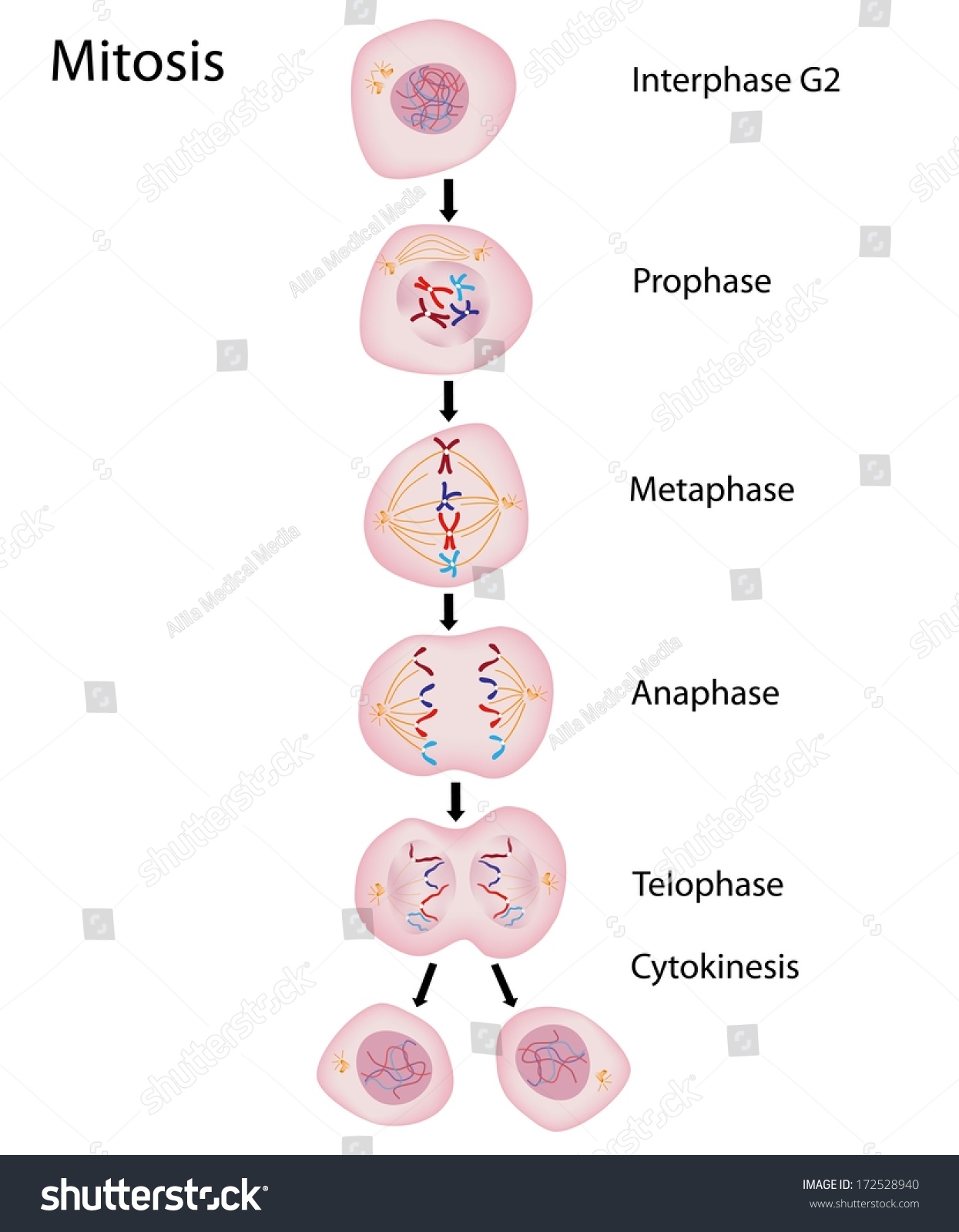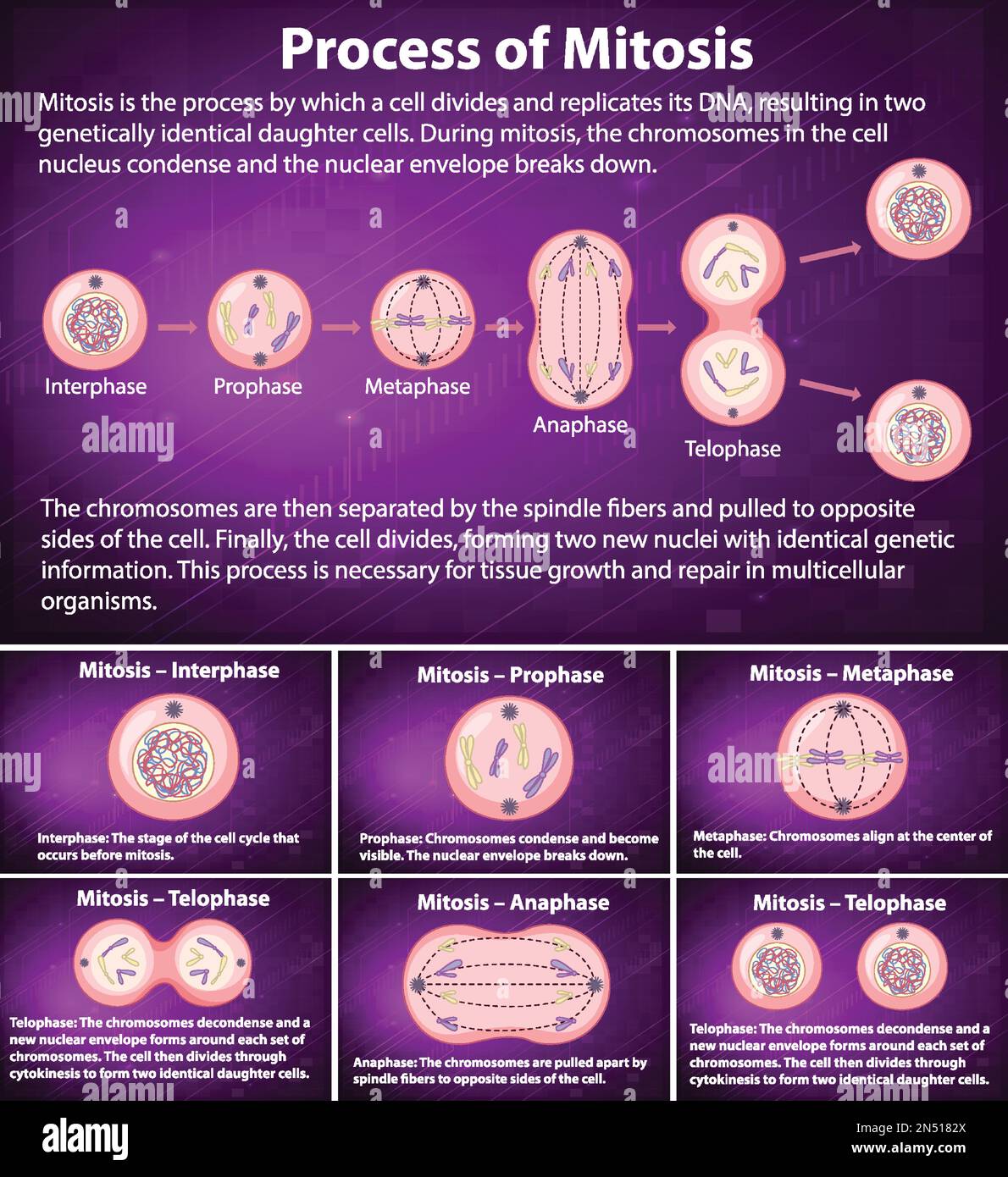Phases Of Mitosis Slides Biology Diagrams Mitosis is a type of cell division which produces two identical diploid daughter cells. Cancerous tumours are either malignant or benign. Specialised cells are formed when stem cells differentiate. Mitosis succeeds the G2 phase and is followed by cytokinesis where the cytoplasm divides after the separation of the nucleus. It has five phases: prophase, prometaphase, metaphase, anaphase, and telophase. Mitosis forms the basis of sexual reproduction and is important for the growth and development of the embryo. Diagram of Mitosis The mitosis stages diagram serves as an essential tool for researchers studying cell division and its implications in various biological processes. It enables scientists to visualize and analyze the precise timing and sequence of events that occur during mitosis, leading to a deeper understanding of cell biology and the development of new

Mitosis is a short period of chromosome condensation, segregation, and cytoplasmic division. The mitosis occurs in the somatic cells, and it is meant for the multiplication of cell numbers during embryogenesis and blastogenesis of plants and animals. As a process, mitosis is remarkably similar in all animals and plants. Image Source: Biology Wise. Mitosis is a method of cell division where the mother cell divides to produce two genetically identical daughter cells.Itis similar in both plants and animals. In lower animals such as amoeba, mitosis is a means of asexual reproduction without the involvement of sex cells or gametes.. The term 'mitosis' was coined by Walther Flemming in 1882 and derived from the Greek word 'mitos

The Fascinating Stages of Mitosis: A Visual Guide Biology Diagrams
Four Phases of Mitosis Diagram. Mitosis is the process of cell division that produces two identical daughter cells. It consists of four distinct phases: prophase, metaphase, anaphase, and telophase. These phases are essential for the proper distribution of genetic material and the formation of two new cells.

Mitosis, a process of cell duplication, or reproduction, during which one cell gives rise to two genetically identical daughter cells. Strictly applied, the term is used to describe the duplication and distribution of chromosomes, the structures that carry the genetic information. A Timeline of the World in 8 Maps. 5 Weird Facts About Venus

Definition, Stages, Diagram, & Facts Biology Diagrams
Ed Reschke/Photolibrary/Getty Images. Before a dividing cell enters mitosis, it undergoes a period of growth called interphase. About 90% of a cell's time in the normal cell cycle may be spent in interphase.. G1 phase: The period before the synthesis of DNA.In this phase, the cell increases in mass in preparation for cell division.

